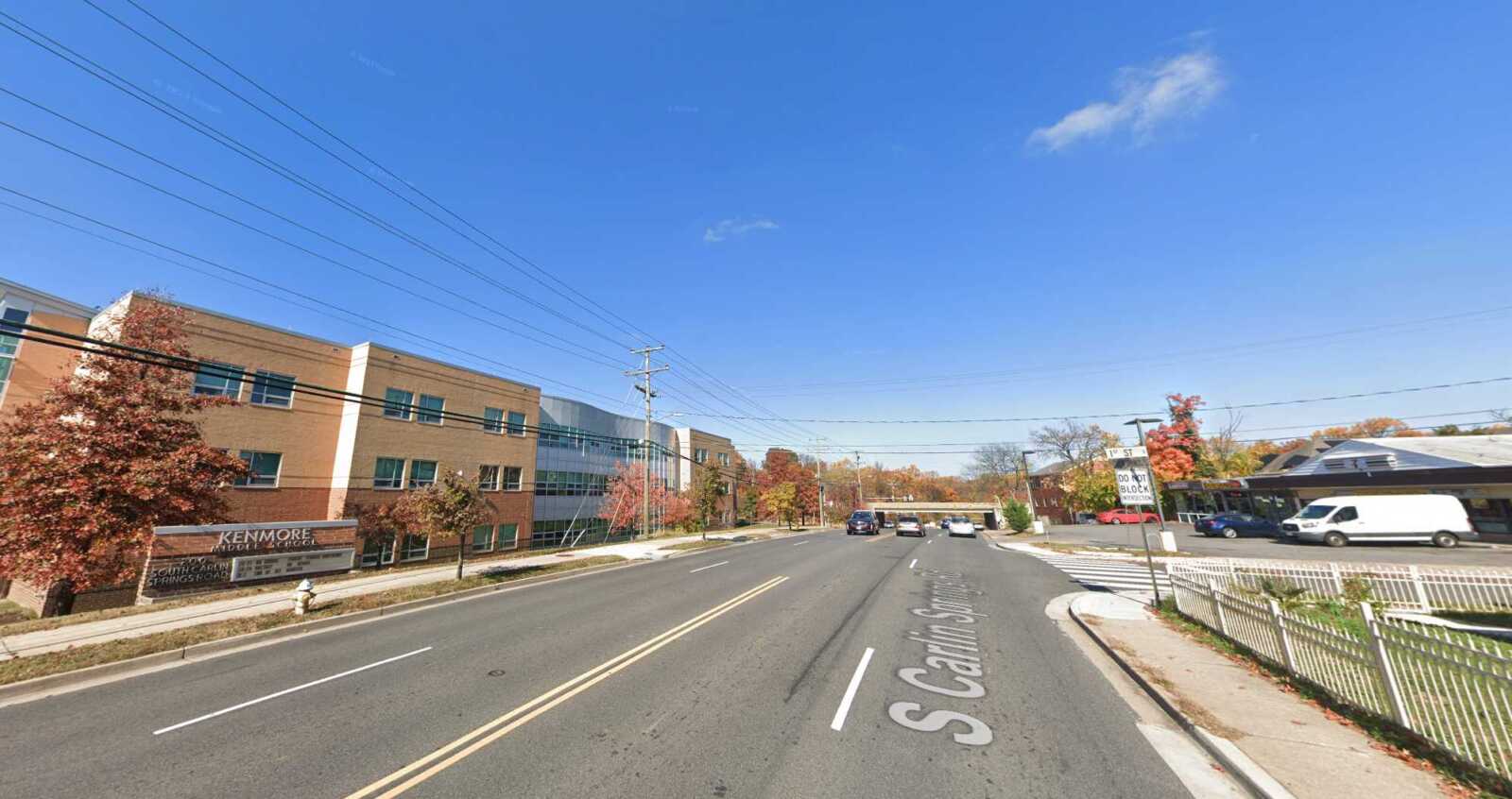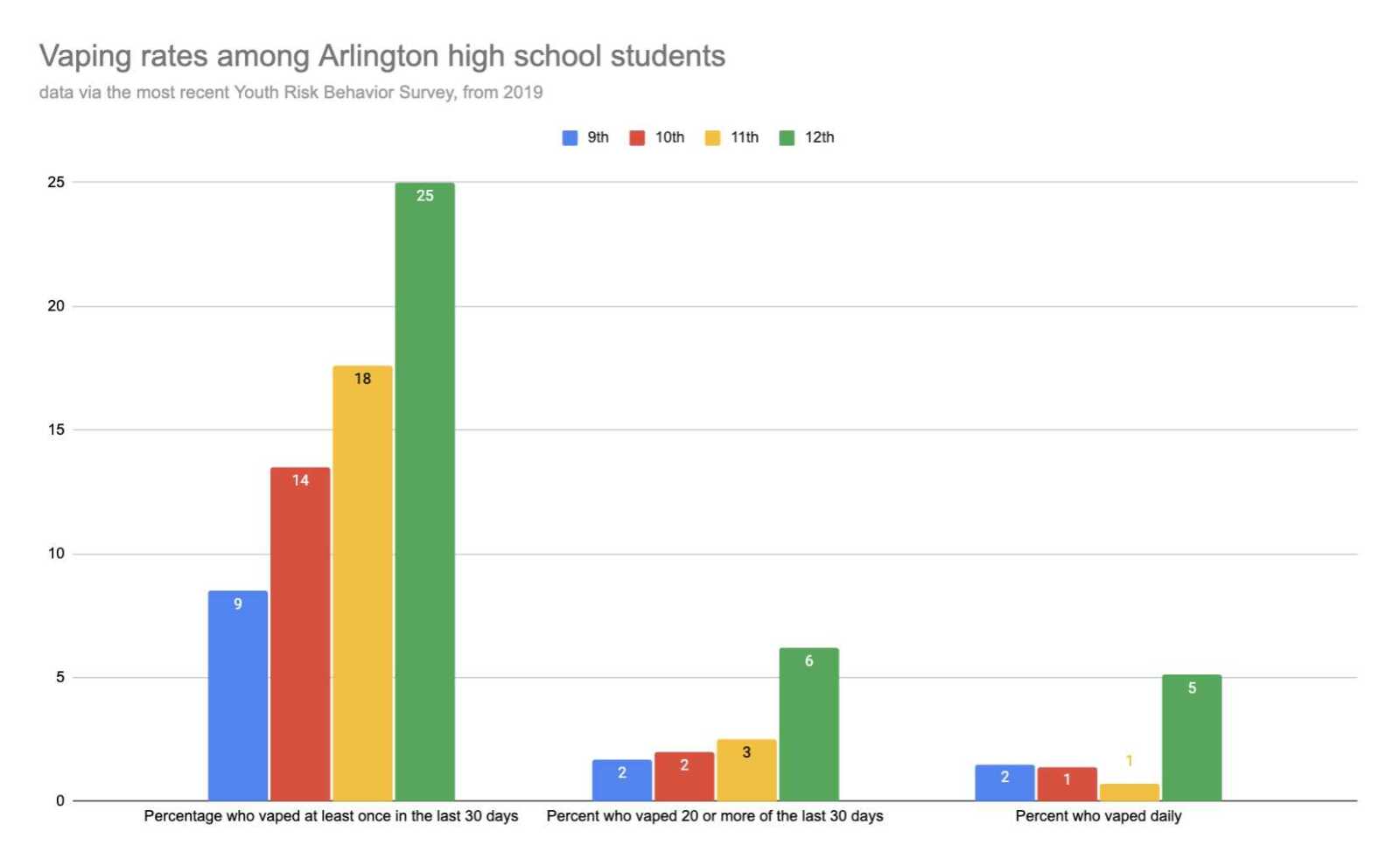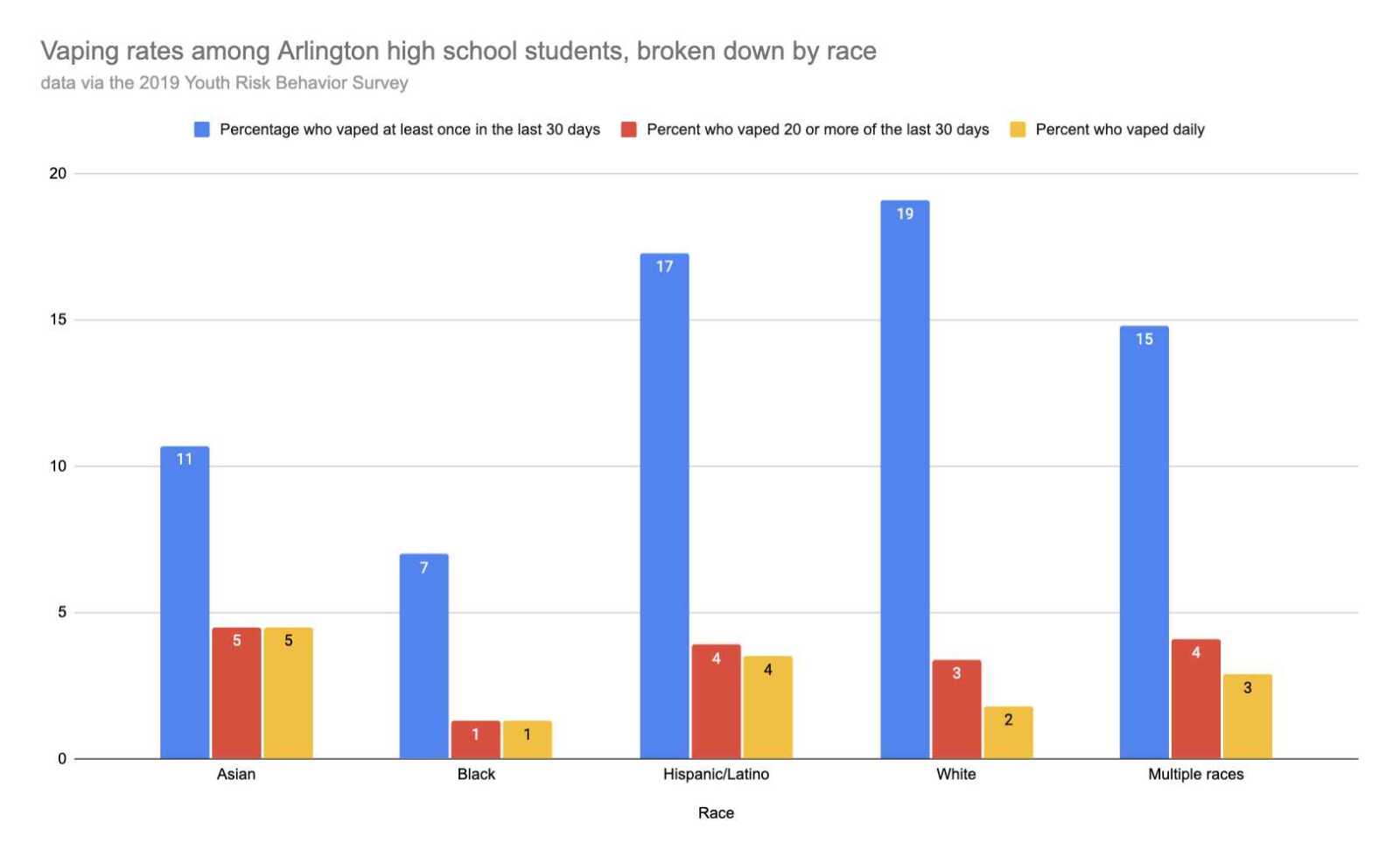
Arlington Public Schools is mulling support for legislation that would allow localities to prevent vape shops from opening up near schools.
This is the first time the idea for such a bill has been considered as part of the School Board’s annual legislative package, according to Frank Bellavia, a spokesman for the school system. The package has not yet been approved by the Board.
“Lawmakers around the region have been discussing this issue recently, which drew our interest,” Bellavia said. “We’ve been speaking with Senator [Barbara] Favola and Delegate [Alfonso] Lopez about this so far but may speak with others about it as well.”
Interest in such a bill comes as APS is upping its focus on tackling youth substance use in schools through lessons on the impacts of vaping delivered to students in grades 4-12 and to their families. While fentanyl abuse has captured more community attention, vaping is a significant concern, particularly as students matriculate through high school.
For instance, exposure to and frequent vaping increased from 9th to 12th grade, according to the 2019 Youth Risk Behavior Survey. Bellavia says this is the most recent data that APS has on vaping trends, though another such survey will be conducted next year and inform the school system’s advocacy.

Notably, per the survey, nearly 200 students under 18 reported buying their own vape products at convenience stores, gas stations or vape stores.
The survey was conducted just before the state raised the minimum age for buying tobacco products from 18 to 21.

That is where a law limiting where vape shops can do business could come in. As for a potential legislative push, Bellavia says APS is still early in the process of formulating possible legislative text that would inform a potential bill. The school system will have more details in a few weeks, he noted.
Lawmakers representing Arlington in Richmond tell ARLnow they are interested in sponsoring or voting for such a bill or other bills firming up requirements of vape shops to curtail underage sales. Currently, nearly 17% of sales are to minors and the state would incur a $4 million penalty if the rate were to exceed 20%, according to a state report released last week and provided to ARLnow.
“I am interested in giving localities the authority to prevent vape shops from locating near schools and look forward to discussing this idea at the legislative work session with the County Board,” said Favola.
Sen. Adam Ebbin and Del. Patrick Hope say underage vaping has concerned them for years but they are not sure preventing shops from moving near schools is enough. Moreover, such a law could not be used to boot out existing retailers near schools.
“We have a real epidemic right now — not just among high schoolers but junior high schoolers — who are vaping,” says Ebbin. “It’s highly addictive and nicotine has adverse consequences on young developing brains.”
He and Hope say the state ought to require shops or dealers who sell nicotine products to obtain licenses where they currently are only subject to a law banning the sale of nicotine products to those under 21 years old. In the 2023 legislative session, both tried to pass a licensing scheme, which would tee up the state to inspect stores and fine or ban those that repeatedly sell to minors.
“We have a problem in Virginia of underage vaping,” Hope said. “I think the solution to the underage issue is licensure… because it is ultimate death for these establishments. They would have to close their doors.”
Hope says penalties for selling to minors are weak, making it harder to enforce the law effectively. Violating this rule carries a civil penalty, applied to the business, and even a third offense only carries a $500 fine whereas a licensing scheme could carry stiffer penalties and ultimately result in banning bad actors who sell to minors from ever being able to sell nicotine products in Virginia again, he said.
Ebbin and Hope’s 2023 legislation vaping failed but the General Assembly did agree to order an assessment of a liquid nicotine licensing scheme. When Gov. Glenn Youngkin signed the bill into law, he assigned the duty to the Virginia ABC, which published its findings last week.
Virginia ABC heard from various retailers, addiction prevention advocates and state agencies and concluded there “was shared concern among the group regarding potential efforts to address underage sales” but “there was no consensus recommendation,” per the report.
Ebbin and Hope remain dogged in their desire to pursue a licensing scheme, which they say would incentivize better behavior.
One licensing proponent is the Virginia Smoke Free Association. It represents vapor product manufacturers, wholesalers and retailers interested in helping people transition from traditional cigarettes to vapor products, says association representative Dylan Bishop.
“What we’re trying to do with licensing is legitimize the industry,” he said. “Right now, there are no registration or licensing requirements.”
Convenience stores, meanwhile, are opposed to licensing, viewing it as placing “additional and unnecessary burdens on small business that are trying to recover from the COVID-19 pandemic,” according to the Oct. 31 Virginia ABC report.
A trade association representing Asian-American convenience store owners and gas station operators “posits that Virginia already has penalties and deterrents to prevent tobacco from being sold to minors,” the report says.
Hope says a licensing scheme, and steep fines for violations, would pay for stepped up inspections. Without that revenue source, he says, Virginia could use its settlement with Juul to pay for more stings. The state joined 33 others in a suit resulting in a $438.5 million settlement with the vapor product company and will receive $16.8 million, per the Richmond Times-Dispatch.

